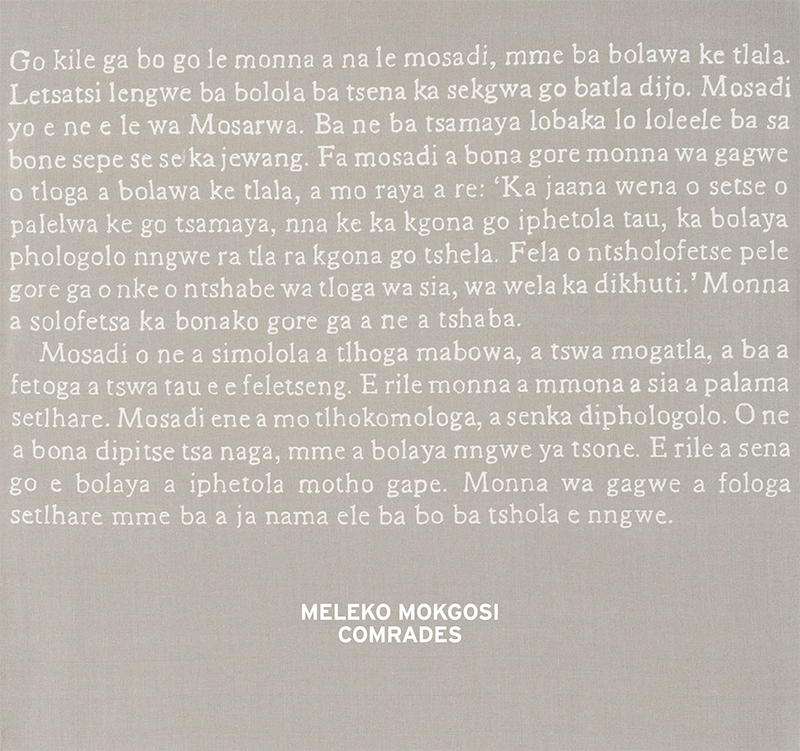
Meleko Mokgosi
Comrades
Meleko Mokgosi's Comrades, consisting of new figurative and text-based paintings, is the second chapter in Democratic Intuition, the artist's current project following his eight-chapter painting installation project Pax Kaffraria (2010-14). In Comrades, Mokgosi examines the historical, aesthetic and conceptual links between southern African liberation movements and communism. With close attention to the ways in which language is used, Mokgosi asks how the idea of democracy, articulated during the struggle, has shaped and continues to shape the current state of citizens' experience and reciprocation of democracy.
In an accompanying essay, Jason Farago scrutinises Mokgosi's insistence on painting - and specifically history painting - as his only possible medium:
Why would an artist like Mokgosi, so eager to reconceive the way we narrate and transmit history, insist on a format of the past? The answer, I suppose, is a quintessentially modern one: because the medium and the message, the subject and the support, cannot be divorced. History painting in Europe was more than a style; it was a summation of western moral and aesthetic principles, and the medium via which early modern society saw its ideals in images. Those ideals included knowledge, reason and honour, but also bellicosity, the sovereignty of elites, white supremacy and the dominance of men. You can criticise those ideals from the outside, but if you want to unwind their enduring power the best way out is always through.
Published by Stevenson | Catalogue 85, March 2016
Softcover, 42 pages | Price: R150

